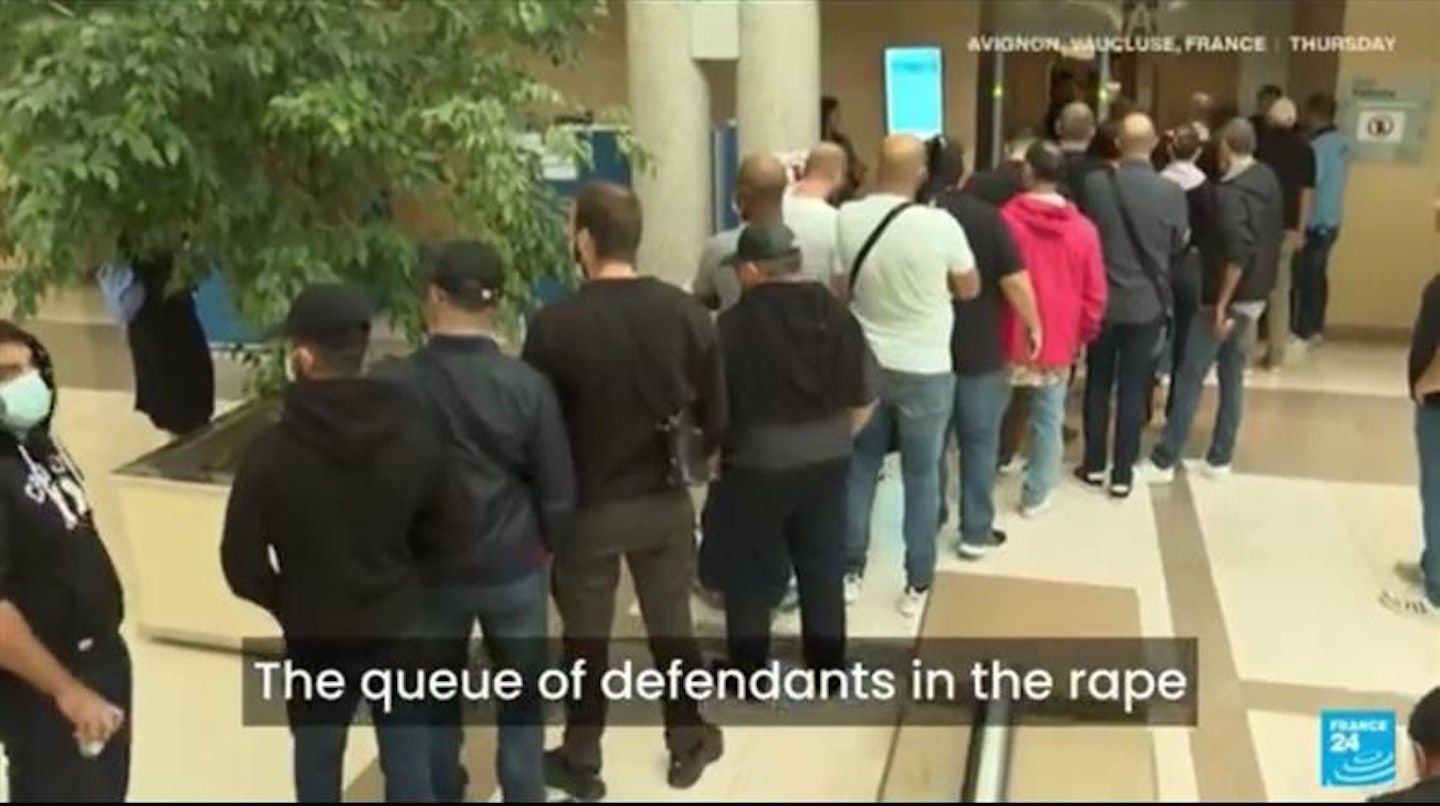This month, women across the world have been devastated by the story of Gisèle Pélicot, a 72-year-old French woman whose now ex-husband is on trial accused of sedating and raping her repeatedly, and enlisting 72 other men to rape her over the course of almost a decade. Around 20,000 images documenting the abuse were found on Dominique Pélicot’s electronic devices, and 50 of the alleged abusers are now on trial alongside him. This week he admitted to the charges. Referring to the other co-defendants he said: ‘I am a rapist like the others in this room.’
The case has led to an outpouring of grief and rage from women, mixed with awe and gratitude for the unimaginable courage of Gisèle, who demanded a public trial rather than private proceedings, in order to defy the notion that survivors should be ashamed of the abuse they have experienced. ‘I speak for all women who are drugged and don’t know about it; I do it on behalf of all women who will perhaps never know,’ she said.

But in the outpouring of anger, shock and sorrow prompted by the case, male voices have been noticeably few and far-between. Women across social media have voiced their unease and disappointment that while their female friends have been sharing their outrage, it seems to have passed by the men in their networks. This isn’t purely anecdotal – I carried out an analysis of tweets using the social listening tool Brandwatch, which showed that 76% of tweets since 28 August containing the word ‘Pelicot’ have come from women’s accounts.
Of course, the‘not all men’ detractorsare out in force. And no, all men are not implicated by Dominique Pélicot’s actions, nor should they feel the need to apologise on his behalf. But their voices are still urgently needed in the desperately overdue public reckoning on sexual violence.
In the past couple of months alone women have reeled from the murder of three little girls at a dance class, the murder of Olympian Rebecca Cheptegei, the rape and murder of an Indian doctor on a night shift, the killing of three women in a brutal crossbow attack, the suspected murder of a woman and her three children in a Bradford house fire, the stabbing of an 11-year-old girl in Leicester Square and far more cases than I have enough space to list here.
This is an epidemic. It is a catastrophe. It is a public health crisis. And it is normal. The only way to recognise this national and global emergency is for us to treat it as such: to notice, to bear witness, to lament, to protest, to be angry and to demand change. So why aren’t more men playing a part in that process?
Men’s absence from the conversation about the Pélicot trial is particularly painful given the questions about complicity it raises. Salacious headlines describing Dominique Pélicot as the ‘Monster of Avignon’ are unhelpful: the horror of this case is that dozens of ‘normal’ men: Pélicot’s neighbours, local firefighters and journalists, ranging in age from 26 to 74, many with partners and families of their own, are alleged to have participated in the abuse.
There must have been more men who saw Pélicot’s online advert, on a message board called ‘Without their knowledge’, hosted by a now-defunct website known for postings that involved illegal activities, and did not respond to it. But the fact they did not join in the abuse of Gisèle is not enough. Just like the Harvey Weinstein case, in which the disgraced movie mogul’s abuse of women was an open secret in his industry, this hor- rifying catalogue of abuse was facilitated by the people who turned a blind eye.
Not doing wrong isn’t a high enough bar. We need men to speak up in the grey areas and ‘low level’ moments that create the foundations of everyday sexism in our society in the first place. We need them to disrupt the ideas and attitudes towards women that create the fertile ground from which more serious abuses spring. We need them to start the difficult and uncomfortable conversations we desperately need to be having; to speak up in the WhatsApp groups or the locker rooms or around the conference table when those apparently minor ‘off-colour’ comments are dismissed as ‘jokes’ or ‘banter’ instead of being addressed.
Of course there’s a difference between a man who makes a sexist joke and a rapist. But addressing the normalisation of sexism is where we start to address the roots of gendered violence. It is how good men can help.
If some men feel we aren’t doing a good enough job of making this distinction, perhaps they might like to pause to consider that we are terrified. We are devastated. We are exhausted. Cases like this serve to remind us that we are right to fear for our safety constantly. So next time you reach for the phrase ‘not all men’, ask yourself this instead: how many more men? And what can I do to stop them?
